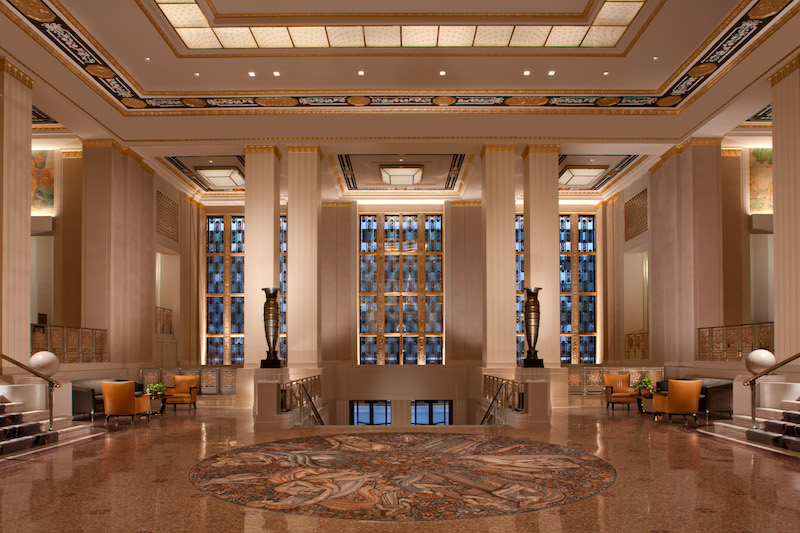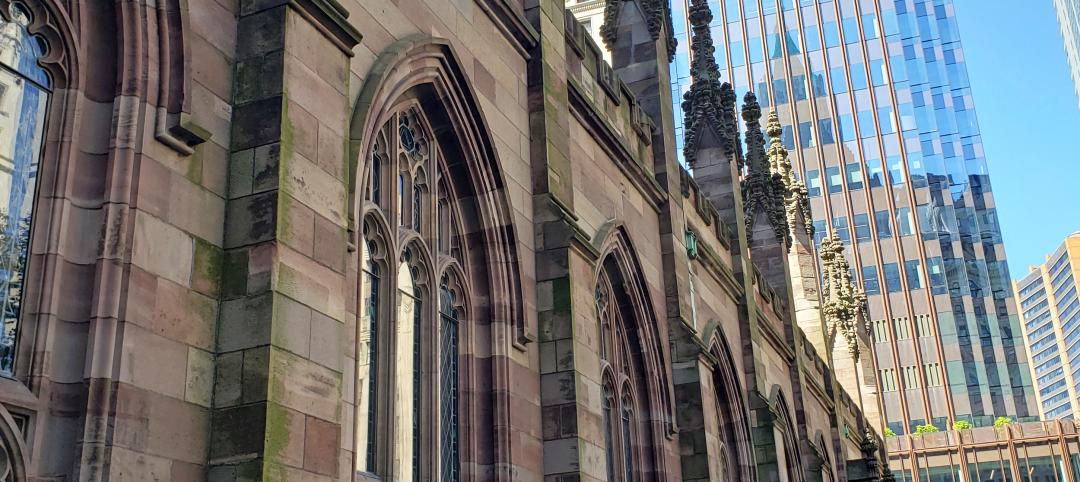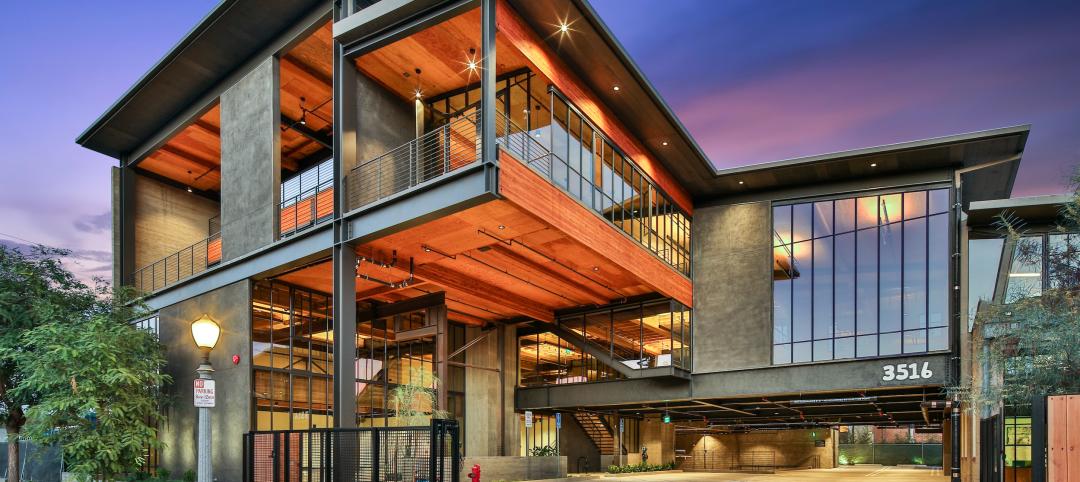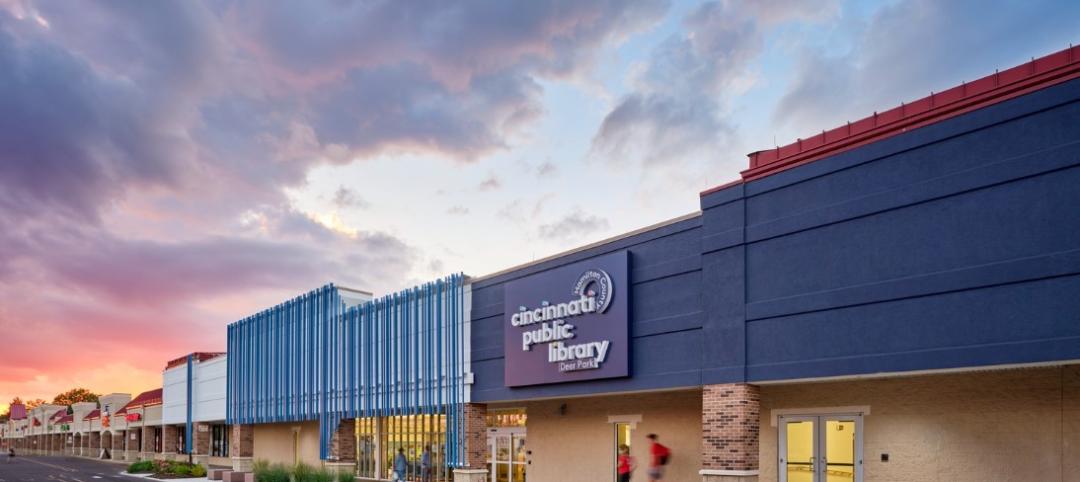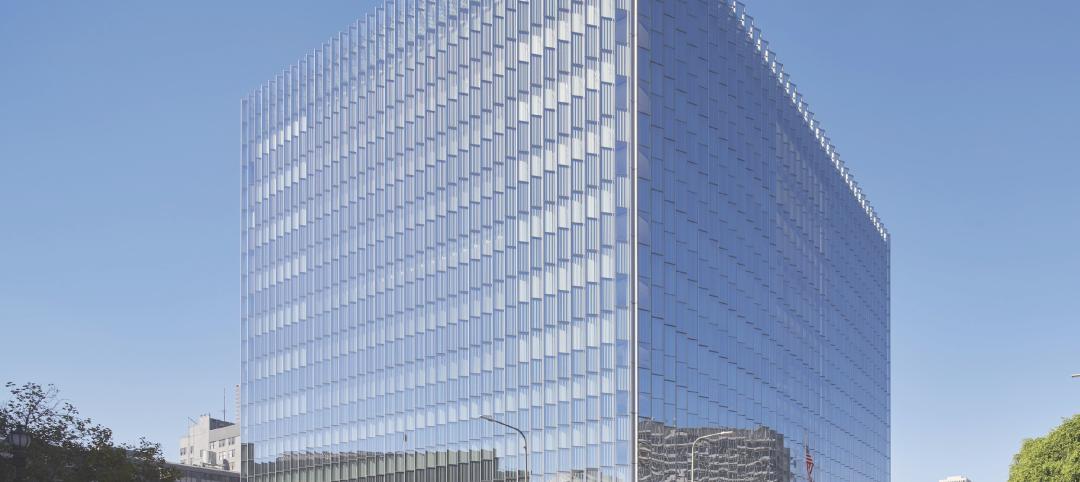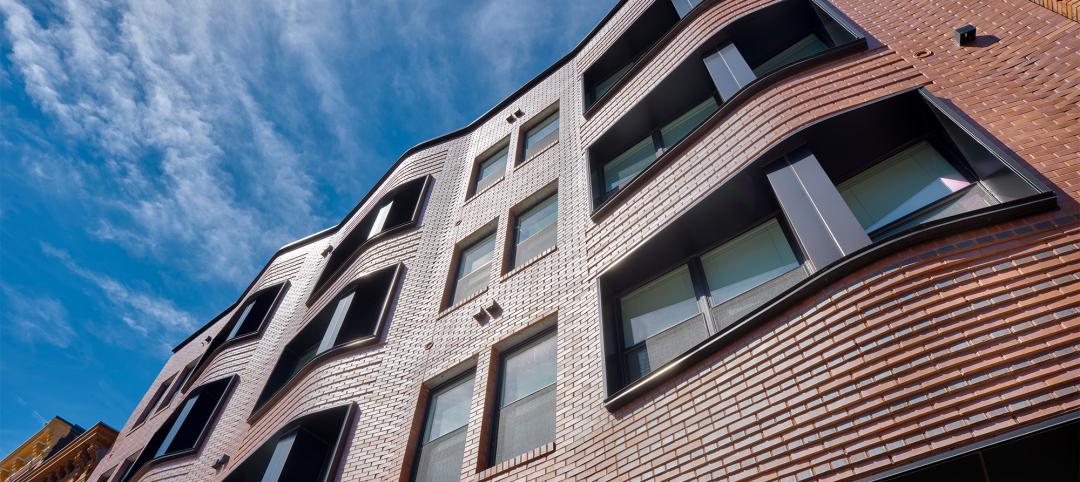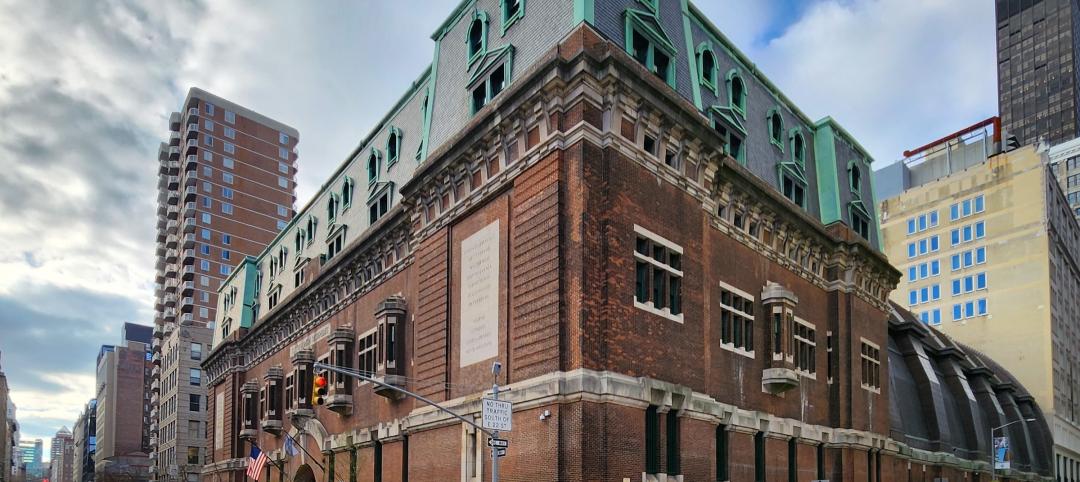The nearly $2 billion reconstruction and renovation of the Waldorf Astoria New York is moving into its second stage of construction.
The iconic hotel, which opened at its current site in 1931, has been closed since February 2017, and is scheduled to reopen in 2021 (one year later than previously announced). With the interior demolition mostly completed, contractor AECOM Tishman has signed a new contract with Anbang Insurance Group, the property’s owner, to begin construction of 350 condominiums and 350 new hotel rooms and suites.
This project, which continues to operate under the Hilton brand, significantly reduces the number of hotel rooms available from its 1,413 guest rooms before the renovation began. However, the size of entry-level rooms after the renovation is completed will average 650 sf. Skidmore, Owings & Merrill is the project’s Architect, and Pierre Yves Rochon is designing the interiors and guest rooms.
Prior to the start of this reconstruction, several of the hotel’s more famous spaces were granted landmark status by New York City’s Landmarks Preservation Commission, including its West Lounge (better known as Peacock Alley), its Grand Ballroom, and its lobby from Park Avenue that includes 13 murals and a floor mosaic designed by French artist Louis Rigal.
Also included will be the restoration of the hotel’s nine-ft-tall clock, which has stood in the Waldorf’s lobby for decades.
“Anbang has imagined something truly spectacular for this global icon, and we look forward to delivering [its] vision,” says Jay Badame, President of AECOM’s Building Construction Business. All of the landmark spaces will remain open once the reconstruction is completed and the building is reopened.
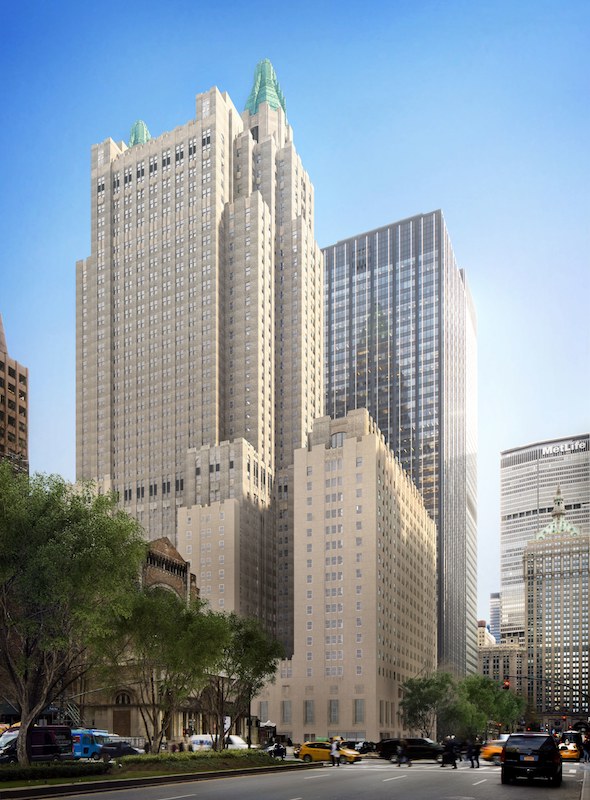
The Waldorf Astoria is losing around 1,000 guest rooms as a result of its reconstruction and renovation, but the 350 that remain will average 650 sf. Image: (c) SOM | Rendering by Methanoia Inc.
China-based Anbang acquired the Waldorf from the Hilton chain in 2014 for just under $2 billion. Hilton continues to manage the property under a 100-year agreement.
A spokesperson for Anbang tells BD+C that the second construction and renovation phase will involve several core and shell elements, including the installation of new elevators, fireproofing, major MEP equipment, and a new HVAC system. During this phase the building’s exterior façade will be restored, and new windows and roof installed.
However, the future ownership of the Waldorf remains uncertain. Last winter, the Chinese government took over Anbang and jailed its largest shareholder, Wu Xiaohui, on fraud charges. The Wall Street Journal reports that Anbang is under pressure to raise cash and has put up for sale its $5.5 billion luxury hotel portfolio in the U.S., albeit excluding the Waldorf Astoria.
Related Stories
Sponsored | Building Enclosure Systems | May 16, 2023
4 steps to a better building enclosure
Dividing the outside environment from the interior, the building enclosure is one of the most important parts of the structure. The enclosure not only defines the building’s aesthetic, but also protects occupants from the elements and facilitates a comfortable, controlled climate. With dozens of components comprising the exterior assemblies, from foundation to cladding to roof, figuring out which concerns to address first can be daunting.
Multifamily Housing | May 16, 2023
Legislators aim to make office-to-housing conversions easier
Lawmakers around the country are looking for ways to spur conversions of office space to residential use.cSuch projects come with challenges such as inadequate plumbing, not enough exterior-facing windows, and footprints that don’t easily lend themselves to residential use. These conditions raise the cost for developers.
Sustainability | May 11, 2023
Let's build toward a circular economy
Eric Corey Freed, Director of Sustainability, CannonDesign, discusses the values of well-designed, regenerative buildings.
Office Buildings | May 4, 2023
In Southern California, a former industrial zone continues to revitalize with an award-winning office property
In Culver City, Calif., Del Amo Construction, a construction company based in Southern California, has completed the adaptive reuse of 3516 Schaefer St, a new office property. 3516 Schaefer is located in Culver City’s redeveloped Hayden Tract neighborhood, a former industrial zone that has become a technology and corporate hub.
Higher Education | Apr 17, 2023
Rider University opens a 'Zen Den' for restoring students' mental well-being
Rider University partnered with Spiezle Architectural Group to create a relaxation room for students, dubbed "The Zen Den."
Libraries | Mar 26, 2023
An abandoned T.J. Maxx is transformed into a new public library in Cincinnati
What was once an abandoned T.J. Maxx store in a shopping center is now a vibrant, inviting public library. The Cincinnati & Hamilton County Public Library (CHPL) has transformed the ghost store into the new Deer Park Library, designed by GBBN.
Government Buildings | Mar 24, 2023
19 federal buildings named GSA Design Awards winners
After a six-year hiatus, the U.S. General Services Administration late last year resumed its esteemed GSA Design Awards program. In all, 19 federal building projects nationwide were honored with 2022 GSA Design Awards, eight with Honor Awards and 11 with Citations.
Affordable Housing | Mar 8, 2023
7 affordable housing developments built near historic districts, community ties
While some new multifamily developments strive for modernity, others choose to retain historic aesthetics.
Reconstruction & Renovation | Mar 8, 2023
Hoffmann Architects + Engineers receives Lucy G. Moses Preservation Award from New York Landmarks Conservancy
Hoffmann Architects + Engineers, a design firm specializing in the rehabilitation of building exteriors, announces that the historic facade rehabilitation and window replacement at the 69th Regiment Armory has been selected for the Lucy G. Moses Preservation Award, the New York Landmarks Conservancy’s prestigious recognition for outstanding preservation efforts.
Adaptive Reuse | Mar 5, 2023
Pittsburgh offers funds for office-to-residential conversions
The City of Pittsburgh’s redevelopment agency is accepting applications for funding from developers on projects to convert office buildings into affordable housing. The city’s goals are to improve downtown vitality, make better use of underutilized and vacant commercial office space, and alleviate a housing shortage.


